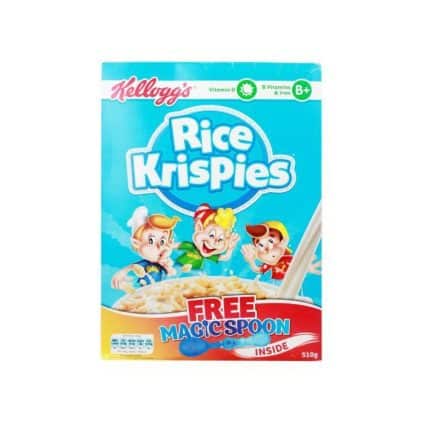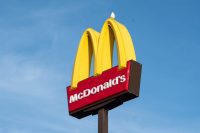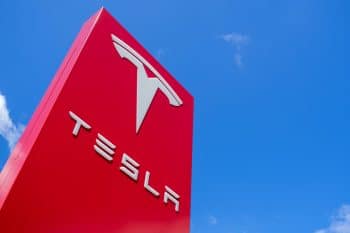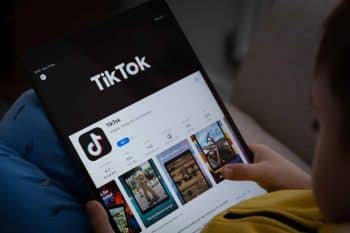Home » Bizarre Lawsuits • Spotlight » The biggest companies that lost millions in lawsuits
The biggest companies that lost millions in lawsuits
https://www.whatjobs.com/news/what-news-topical/the-biggest-companies-that-lost-millions-in-lawsuits

By Hugh Fort in Bizarre Lawsuits, posted January 10, 2024

Big companies have the resources to pay for exceptional legal teams and financially endure litigation for years — but they don’t always win lawsuits.
Companies such as McDonald’s and Enron have had to pay out millions — and sometimes billions — as part of lawsuits and settlements.
For some, the lawsuits have put them out of business, but many are able to carry on in the face of these significant financial setbacks.
Find out why these companies were taken to court and how much their biggest failures cost them.
Kellogg
In 2009, Kellogg launched a new ad campaign and box design for its Rice Krispies cereal.
The company made claims about the cereal’s capability to elevate children’s immunity.
However, The Oregon attorney general, the FTC, and a number of private individuals issued lawsuits over the claim due to a shortfall of scientific evidence to support it.
Lexology reported the different lawsuits were rolled into one class-action lawsuit.
This led to Kellogg settling for $5 million — $2.5 million to consumers, and $2.5 million worth of Kellogg’s products to charity - in 2011.
Apple
In 2016, Nokia sued Apple for patent infringement, declaring Apple has leaned on its patents related to software, video coding, chipsets, display, UI, and antenna for years dating back to the release of the iPhone 3GS.
The companies settled for an unrevealed amount in May 2017, but Nokiamob said Apple ended up paying Nokia a huge $2 billion.
In spite of the lawsuit, the companies came to terms with everything.
The two agreed to what could be a profitable collaboration on technologies and research and development for future projects.
Visa and MasterCard
A 13-year court battle saw Visa and Mastercard agreed to pay up to $6.2 billion over unfair swipe fees.
The lawsuit claimed that Visa and MasterCard infringed antitrust laws by fixing prices to benefit the banks.
A settlement had been reached in 2012, but it was rejected by the retailers as being unfair and was overturned.
The new settlement required Visa to pay an additional $600 million, and MasterCard to pay an additional $108 million.
McDonald’s
In 1992, 79-year-old Stella Liebeck of Albuquerque, sued McDonald’s after the fast-food chain’s coffee caused severe burns when she accidentally spilled some onto her lap.
Liebeck offered to settle the claim for $20,000, but McDonald’s decided to fight it.
Throughout the trial, it came to light that McDonald’s was serving their coffee at a ridiculously dangerous temperature — between 180 and 190 degrees — while most other fast-food restaurants serve coffee in the range of 135 to 140 degrees.
Liebeck was awarded $200,000 in compensatory damages and $2.7 million in punitive damages, however, those charges were lowered by the trial judge.
Liebeck ended up settling with McDonald’s for an undisclosed amount, and McDonald’s lowered the temperature of its coffee.
Looking to boost your online brand? Create your FREE business profile atWhatBiz? Here
Red Bull
After all, it turns out Red Bull does not give you wings.
Benjamin Careathers filed a class-action lawsuit against Red Bull in 2013, alleging that the company’s claims that the energy drink increased performance, concentration, and reaction speed were misleading.
Careathers ' research found a can of Red Bull has less caffeine than a cup of coffee.
The company was demanded to pay $13 million in a settlement, which would be put toward a fund that would compensate anyone who had purchased a can of Red Bull over the last 10 years.
Or they could get two free Red Bull products.
Volkswagen
In 2016, car manufacturer Volkswagen agreed to a $14.7 billion settlement after it came to the surface that the company had been purposely cheating on emissions tests.
Up to $10 billion of that settlement was to be paid out to owners of the affected cars through buybacks, repairs, and additional compensation.
Buybacks continued to the end of 2019.
Philip Morris
Philip Morris is the company behind some of the well-known cigarette brands.
One of its cigarette manufacturers was hit by lawsuits by several U.S. states to regain the costs incurred to treat sick and dying cigarette smokers.
The Master Settlement Agreement was reached in 1998, and it required the tobacco industry to pay the settling states billions of dollars each year forever and set restrictions on the sale and marketing of cigarettes by the participating manufacturers.
In Fiscal Year 2019, the participating states accumulated $27.3 billion from the settlement and taxes.
Philip Morris has since re-branded itself to PMI and is now concentrating on the growth and sales of its smoke-free tobacco products.
Spotify
In 2015, the band Camper Van Beethoven and Cracker frontman David Lowery filed a lawsuit against Spotify for broadcasting songs without the appropriate licenses.
The musicians asked for $150 million in damages as part of a class-action lawsuit, Billboard reported.
Almost three years later, Spotify settled and agreed to pay $112.5 million: $43.5 million would go to the artists who were directly affected, and the rest would be used to pay continuing royalties and other fees when required, The Hollywood Reporter reported.
Need Career Advice? Get employment skills advice at all levels of your career
Dannon
Dannon was demanded to pay up to $45 million in damages to consumers under the terms of a class-action lawsuit that was settled in 2010.
It was found that the company had been falsely advertising the apparent health benefits of its Activia and DanActive yogurts as being clinically and scientifically proven.
The company’s legal troubles began when Trish Wiener of Los Angeles filed a federal lawsuit against Dannon, stating that the yogurt did not improve her digestion, and yet the company was charging higher prices than other yogurts.
She reported that the company’s claims were incorrect and misleading.
Splenda
Splenda was sued by its rival Equal over claims that Splenda was deceiving consumers into believing its product was more natural and healthier than other artificial sweeteners by using the motto, “Made from sugar so it tastes like sugar.”
Although the active ingredient in Splenda begins as pure cane sugar, it is chemically modified in the process and the end product contains no sugar.
Merisant Co, which makes Equal, was seeking over $200 million in damages from Splenda’s parent company, McNeil Nutritionals. McNeil did settle the lawsuit, but the amount they ended up paying was not disclosed.
Follow us on X, LinkedIn, and Facebook














